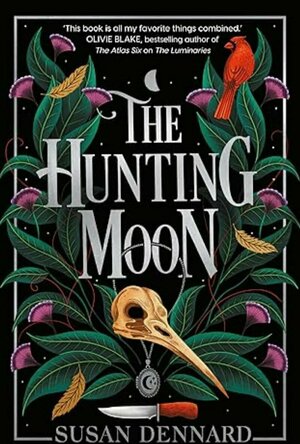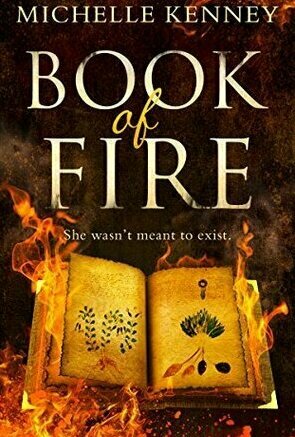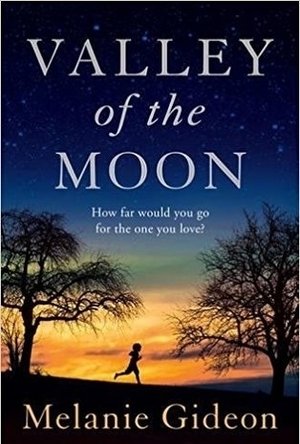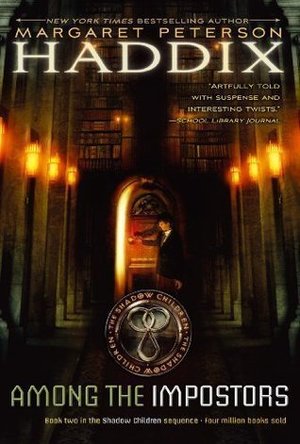
Among the Impostors (Shadow Children, #2)
Book
It was awful. All those eyes, all looking at him. It was straight out of Luke's worst nightmares....
Science Fiction Dystopia Fantasy
ClareR (5589 KP) rated The Hunting Moon in Books
Dec 12, 2023
The world of Hemlock Falls is an interesting one - shut off from the non-magical, they look down on them somewhat, but still feel compelled to keep them (and themselves) safe from the nightmares in the forest separating the two peoples.
We join Winnie Wednesday after she has passed the hunter trials, her family has been welcomed back into the Luminaries after being cast aside by them for some reason (in book 1, I believe!), and Winnie is now a local celebrity. Not that she’s enjoying it very much. She’s worried that everyone is passing her attacker off as a werewolf, and she’s pretty certain that it’s another creature called a Whisperer. And the Whisperer is still killing hunters every night.
There’s a bit of romance as well - Jay Friday, who seems to have his own problems that he doesn’t want anyone to know about, is making advances to Winnie, and she doesn’t mind one bit. He’s a nice boy (I sound like a mum here, I cannot deny I am one).
I listened to this on Bolinda Audio through NetGalley, and the narrator, Caitlin Davies reads the story so well. There’s nothing quite like a good narrator, adding value to a story and bringing a world to life. The feelings of the characters were conveyed so effectively that I felt fully involved.
I think this opens up a whole argument as to whether books should be sectioned off into age groups. I mean, this is YA, so aimed at 12-18, and I can’t for the life of me understand why? Perhaps I’m a simple soul. OK, there’s no sex, but I’ll be honest - I don’t want to read about sex all the time. It can get a bit boring (controversial, perhaps, but there’s my opinion!). And YA seems to do fantasy and science fiction SO WELL!!
So I’m off to read The Luminaries and fill in some gaps, because I loved this second in what I assume will be a trilogy.
Hazel (1853 KP) rated Book of Fire in Books
Mar 7, 2020
Combining dystopia and ancient history, Michelle Kenney's debut series Book of Fire slots nicely into the list of best young adult science-fiction. Set in the not so distant future, the world has been destroyed and human life can only be sustained within a specially designed lifedome - at least that is what everyone living inside has been told. The protagonist, Talia, begs to differ, having lived in secret on the outside all her life.
A rogue test missile exploded with cataclysmic effect on 3rd November 2025, leaving cities in ruins. Whilst most people ran to the lifedome, Talia's grandfather and a few others ran in the opposite direction. For years, they have lived in the relative safety of Arafel, whose existence has been kept hidden from the majority of the people living in the dome.
Unfortunately, the leader of the lifedome is one of the few who knows of their existence and wishes to eradicate them and Talia's peaceful life is suddenly destroyed when her grandfather and her twin brother Eli are captured by soldiers. Determined to rescue them, Talia and her friend Max break into the dome but what they discover makes them even more concerned about the life of not just their families but all the remaining humans.
Obsessed with Ancient Rome, the lifedome's leader Octavia has created a replica of the historical city, going as far as to genetically produce strong and powerful gladiators. Yet, the more Talia sees of the lifedome - Pantheon - the more she realises it is not just extra-strong humans that Octavia has been experimenting with. Hidden in the depth of the dome are mythological creatures made from a mix of human and animal parts; creatures that should not exist, however, they all have various defects.
Talia soon learns that her grandfather was kidnapped for a reason: he knows the secret to create the perfect DNA for these creatures and, in turn, Talia unwittingly knows it too.
Initially, all Talia wanted was her grandfather and brother back but now she is part of something much bigger and must choose between her family, self-preservation and the rest of the human race. On top of that, she begins to fall for a pseudo-Roman Gladiator. Could it get any more complicated?
Michelle Kenney has created a world where the monsters turn out to be the heroes and the humans in charge, the monsters. Reading this at the time of the coronavirus makes the apocalyptic situation a little too close for comfort but it provides a strong message not to mess with things that no longer exist. Imperfection is a common by-product of life's recover - if only Octavia could have accepted that.
Book of Fire is the first in a promising trilogy that will transport you into a world of fantasy, danger, wonderful creatures and a hint of reality. For those who love ancient history and dystopian fiction will thoroughly enjoy this series.
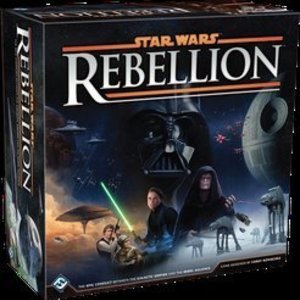
Star Wars: Rebellion
Tabletop Game
Star Wars: Rebellion is a board game of epic conflict between the Galactic Empire and Rebel Alliance...
Boardgames StarwarsGames MiniaturesGames

Read the best books online
Book and Shopping
App
• Read! - a huge library in Estonian, English, Lithuanian, Latvian, Russian and other languages. ...
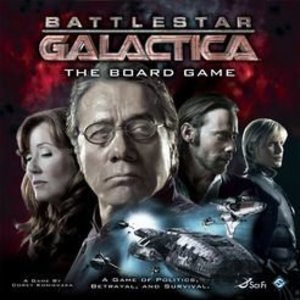
Battlestar Galactica: The Board Game
Tabletop Game
Battlestar Galactica: The Board Game is an exciting game of mistrust, intrigue, and the struggle for...
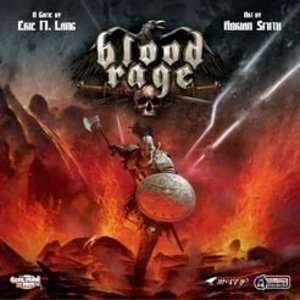
Blood Rage
Tabletop Game
"Life is Battle; Battle is Glory; Glory is ALL" In Blood Rage, each player controls their own...
Miniatures BoardGameGeekGreatness
BankofMarquis (1832 KP) rated The Matrix Resurrections (2021) in Movies
Dec 31, 2021
And, that, pretty much sums up THE MATRIX RESURRECTIONS - a title that is a confession of a studio and creator that is looking to milk a few more bucks out of a dormant franchise.
Written and Directed by Lana Wachowski (one of the creators/directors of the original Matrix trilogy), MATRIX RESURRECTIONS drops us back into the Matrix that is the same, yet different, and - intriguingly enough - brings us back to Neo and Trinity, 2 characters that died in the 3rd film.
Of course, this being Science Fiction/Fantasy, no one needs to stay dead, if another story can be built around them.
Keanu Reeves and Carrie-Anne Moss are back as Neo & Trinity (this film would not have happened if they didn’t say yes to this) - and they are the best thing in this film. Their chemistry is strong and any film that can bring back Carrie-Anne Moss as a lead in a film, is okay by me.
The best newcomer in this film is Jonathan Groff as “Agent Smith” (Hugo Weaving was set to reprise his role, but had to drop out due to Theater Commitments). Groff channels his inner “King George” (the character that he was Tony Nominated for in the Stage Musical Hamilton) and it works well in this film.
As for the other “character/actors” - like the characters that Jada Pinkett-Smith (the only other returning actor from the original trilogy), Yahya Abdbul-Mateen II (playing a version of Morpheus), Thelma Hopkins, Jessica Henwick and…yes that IS Cristina Ricci - they are all pretty generic and serve as plot machinations to get us from one action set piece to another.
And, of course, there is Neil Patrick Harris as “THE ANALYST”, it’s an interesting, pivotal, role in this film and would have been better served being played by someone less “well known”. All I kept thinking as I watched this performance was - “it’s evil Neil Patrick Harris”!
As for the special effects/set pieces, they are “fine” but nothing “special”. The first Matrix film was a brilliant, groundbreaking and mind-bending piece of filmmaking that introduced cinema (for good or ill) to “bullet time” - a Special F/X that has been en vogue ever since. But this film is just a mismash of CGI that is neither brilliant nor groundbreaking and the dense mythology plot of this film is not “mind-bending”, it is more like “headache-inducing”.
Do yourself a favor and skip the Resurrection of The Matrix and, instead, check out the brilliant 1999 original - it holds up well (and is the subject of my January podcast).
Letter Grade: B- (thanks to Reeves, Moss and Groff)
6 Stars (out of 10) and you can take that to the Bank(ofMarquis)
Hazel (1853 KP) rated Valley of the Moon in Books
Sep 5, 2017
For fans of The Time Traveler’s Wife (Niffenegger, 2003) this captivating story by Melanie Gideon is an alluring, spellbinding work of fiction about loving, being loved and finding somewhere you belong. With a touch of time travel in an otherwise typical reality, Valley of the Moon will excite, enrapture and touch readers’ hearts.
It is difficult to give a synoptic review without giving too much of the plot away. In short, the book contains the two lives of complete strangers who meet under extremely unlikely circumstances. It is 1975 and Lux Lysander is struggling to make ends meet as a single mother in San Francisco. Estranged from her parents, Benno has become her life; Lux would do anything for him. The other half of the story begins in 1906 in the Californian Sonoma Valley. Joseph has achieved his dream of creating an Edenic community where races and classes can live in harmony. Greengage is a self-sufficient society where everyone is seen as equal, however, something happens to shake up the peace – literally. A huge earthquake mysteriously leaves the valley unharmed but completely surrounded by a deadly fog. No one can leave and no one can enter, that is until Lux does.
Until the two characters’ lives collide, the narrative is fairly typical, but it quickly takes on a theme that most minds would attempt to debunk. Through a wall of fog, Lux can pass between 1975 and 1906, whereas Joseph and his friends can only stay in their own timeline. Lux begins to live a double life: one with her son Benno and one with the antiquated lifestyle of the Greengage community. Unfortunately, it is only possible to pass through the fog on a fall moon, and not necessarily every month.
Lux’s modern appearance and colloquialisms baffle the community but she soon finds herself a place amongst the inhabitants. For a while, Lux is able to keep her two lives separate, but one slip up causes her to temporarily lose the love and trust of her only son. Torn between her own flesh and blood and the only place she feels she belongs, Lux has to decide how far she would go for the people she loves.
One of the key themes of the novel is relationship. Although romance develops toward the latter stages of the story, the majority is focused on familial love and love between friends. Lux and Benno’s relationship is particularly important, especially when their love becomes strained by Lux’s secret dalliance with the past. The other significant theme is about finding oneself. Lux lives in an era where, despite developments in women’s equality, single mothers are still shunned. Conversely, in 1906 where historically things were worse for women, the egalitarian society feels much more like home.
Lux’s temerity is to be admired as she continues to visit the past despite it being beyond the bounds of possibility. More applaudable is her determination to win back her son as well as her distant parents.
Despite being set for the most part in the 1970s and 80s, Valley of the Moon has a futuristic air about it, with an element of fantasy and science fiction. It is almost a version of The Lion, the Witch and the Wardrobe (Lewis, 1950) but for adults, with more realistic themes. Melanie Gideon admits that she got the idea for the novel from the film Brigadoon (1954) in which the protagonist stumbles across a magical land in the woods. With similarities, Gideon has created her own version of this fairy-tale-like scenario.
Journeying through a range of emotions, Valley of the Moon is a story that engages readers from beginning to end. With ups and downs, the author explores the lives and personalities of the main characters, which develop beautifully over time. This book is not one likely to disappoint its readers.
Cyn Armistead (14 KP) rated Blood Oath (Nathaniel Cade #1) in Books
Mar 1, 2018
Cade is definitely a predator, though - an extremely effective one. Farnsworth attempts to explain his abilities scientifically, rather than mystically (I'd classify this book as science fiction if I had to choose a genre, whereas most books featuring vampires and similar creatures are fantasy or horror). The same is true of the enenies he faces.
While I'm not generally interested in socio-political thrillers (which is what this book was, other than a story about a vampire who works for the president), I did enjoy the fresh take on an old trope. While I normally groan when I see the first book from a new author billed as the beginning of a series (do publishers even buy single books any more?), I'm somewhat pleased this time. I do wish they'd been a little more careful with the name of the series (The President's Vampire), as there's another book with the same name: [b:The President's Vampire: Strange-but-True Tales of the United States of America|690096|The President's Vampire Strange-but-True Tales of the United States of America|Robert Damon Schneck|http://photo.goodreads.com/books/1177264074s/690096.jpg|676444] by [a:Robert Damon Schneck|368998|Robert Damon Schneck|http://www.goodreads.com/images/nophoto/nophoto-U-50x66.jpg]. Then again, if Farnsworth's book or series takes off, I suppose there's a chance that sales of Schneck's will as well. I'm sure he wouldn't complain about that at all. I've put it on my to-read list, after all.
I hope to talk my partner, Sam, into reading <i>Blood Oath</i>. If I do, it'll be fairly miraculous, as I don't recall him anything with dragons or werewolves in it other than ([a:Jim Butcher|10746|Jim Butcher|http://photo.goodreads.com/authors/1205261964p2/10746.jpg]'s Dresden Files) for most of the time that I've known him (12 years as of this writing). After his years at White Wolf, I think many books seem more than slightly derivative. He also did so much research before working on books he wrote for them (like [b:The Book of Nod|416122|The Book of Nod|Sam Chupp|http://photo.goodreads.com/books/1223664741s/416122.jpg|405290]) that he got a little burned out on certain subjects. Farnsworth's approach really is different enough that I think he might give it a chance. Will you?
